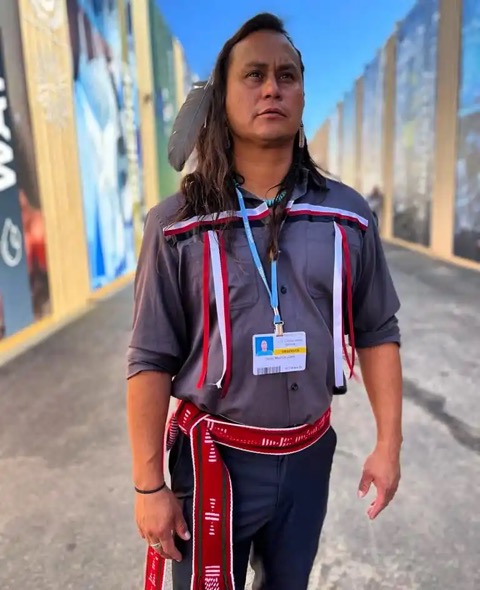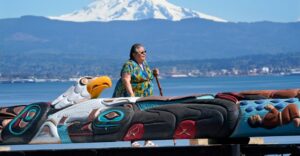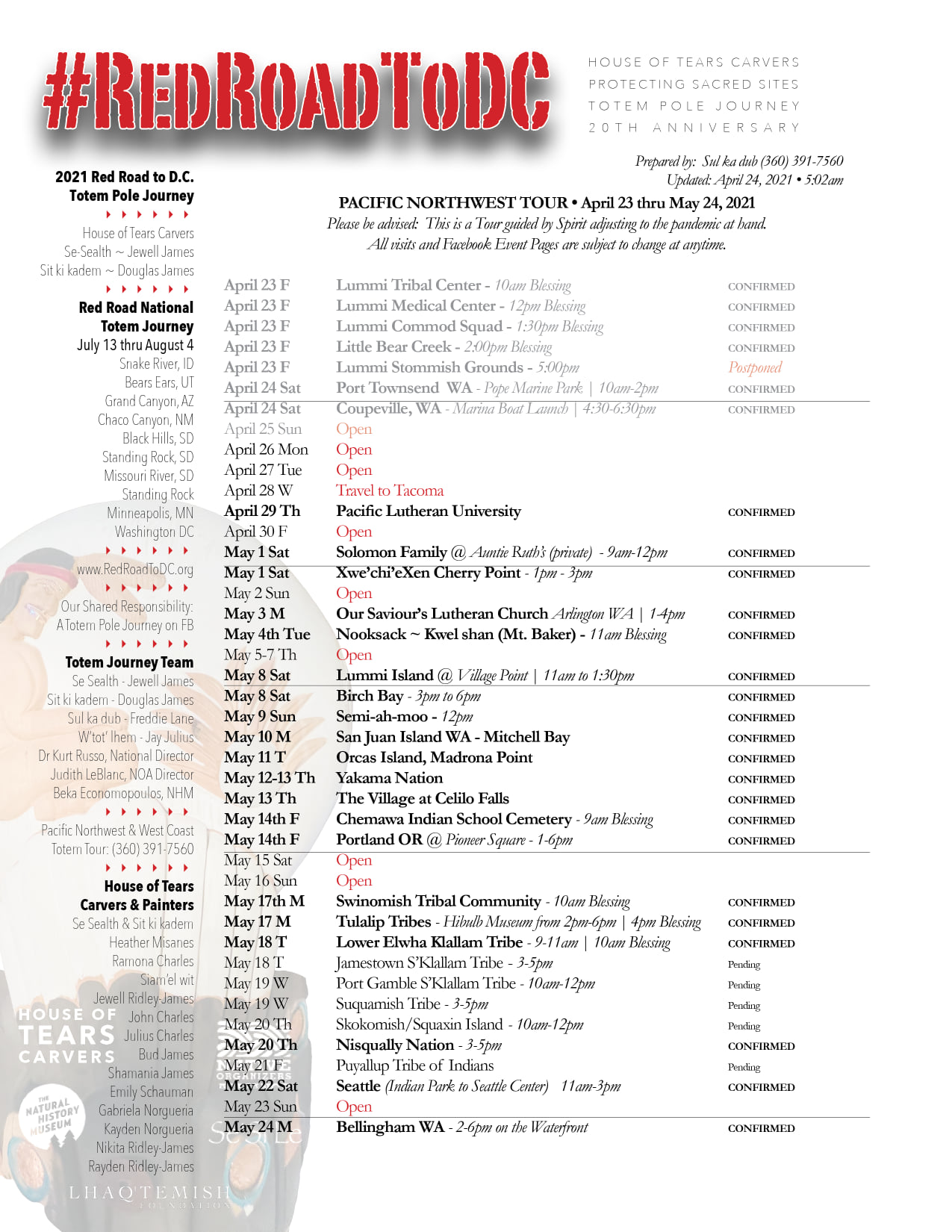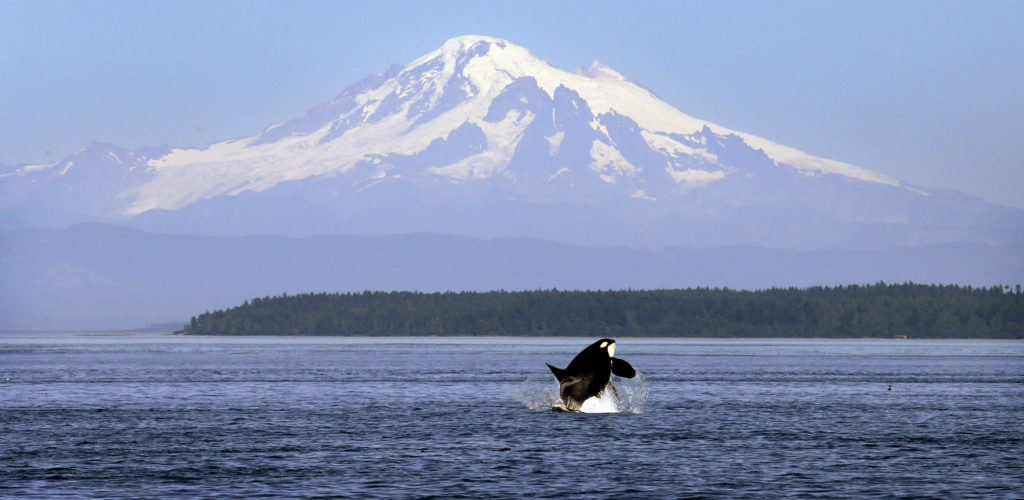Unitarians and the Bond Mission School
Journal of Universalist History Volume XLI (2017-2018) Special Issue: 2016 Convocation of Unitarian Universalist Studies Editor: Kathleen R. Parker 2018, Unitarian Universalist History and Heritage Center
The Montana Industrial school for Indians at Romona Ranch, 1886-1897
by Dana Capasso Stivers, pgs. 38 - 65 Dana Capasso Stivers has, so far to date, offered up one of the more accurate versions of the American Unitarian Association and it's role in the Indian boarding school tragedy, specifically with the Montana Industrial School for Indians, better known as the Bond Mission School. Many of the other, more recent writings on the Bond Mission School skirted around and glossed over a number of issues and attitudes of our predecessors and their participation in aiming "to assimilate the Crow people into Anglo-Saxon society and to dismantle their culture through various forms of symbolic violence."
UU Jacob Johns wounded in peaceful protest, here are ways to help

UUSC and UUCSJ Response to the Shooting of Indigenous Climate Activist Jacob Johns We are holding Jacob Johns, Indigenous climate activist, artist, musician, father, and Unitarian Universalist in great care and invite you to join us in supporting Jacob in his healing and organizing journey. Jacob was shot in the chest on the morning of Thursday, September 28, during a No Juan de Oñate statue peaceful protest in Tewa territory (more commonly known as Española, New Mexico) and is currently in the ICU. This protest was in response to local plans to build a conquistador monument. There are two ways you can financially support Jacob during this most difficult time and through the long haul of recovery
- Via the GoFundMe platform which has been launched for Jacob: https://gofund.me/0a63153a
- Via the Backbone Campaign, in support of Jacob’s ongoing Community Supported Organizing page, where tax-deductible donations can be made: https://www.backbonecampaign.org/jacob
Some news articles (though there's quite a few out there now) https://www.abqjournal.com/news/man-shot-during-juan-de-o-ate-statue-rally-in-espa-ola/article_946dcd3c-5e2d-11ee-9363-97e4e793df8a.html#1 https://sourcenm.com/2023/09/28/trump-supporter-shoots-someone-attending-peaceful-rally/ https://news.yahoo.com/sheriffs-official-ids-suspected-shooter-233400729.html Deb Cruz President, JUUstice Washington
JUUstWA Signs on letter to Biden on the Endangered Species Act
On August 17, 2023, JUUstice Washington Board member approved signing a letter generated by Earth Justice concerning the draft rule changes regarding the Endangered Species Act. During his tenure, former President Trump rolled back a number of regulations that put the Endangered Species Act in jeopardy. President Biden has proposed to put several of those rolled-back regulations back in place; however, has left several of them in place yet. The letter calls on President Biden to restore more of the regulations and strengthen the ESA once again.
We are writing to provide comments on three proposed regulations under the Endangered Species Act (“ESA”) by the Fish and Wildlife Service and the National Marine Fisheries Service (“The Services”). Proposed rules to address harmful regulatory changes made in 2019 that undermined ESA implementation are long overdue, and we welcome this process to finally make needed revisions. The proposed rules would reverse some of the damage done to ESA implementation by the 2019 rules, and we urge you to quickly finalize those important changes. Disappointingly, the proposed rules fail to fully restore the ESA, and we urge the Services to make additional needed changes that have been detailed in public comments dating back to the original 2019 regulatory process, including those detailed below.
Over the past five decades, the ESA has been remarkably successful: 99% of species protected under the Act have not gone extinct. The ESA has also protected millions of acres of habitat: forests, beaches, rivers, and wetlands that species rely on to survive and recover. At the same time, we are facing a growing biodiversity crisis. Human activity has put over a third of the plants and animals in the U.S. at risk of extinction and biodiversity loss is occurring at an unprecedented pace, underscoring why restoration of the ESA’s full potential is more important than ever. The biodiversity crisis means fewer pollinators for agriculture, depleted fisheries, and disappearing places like old-growth forests and wetlands that provide a long-term, low-cost source of clean air, water and carbon storage.
The Endangered Species Act is the best tool we have to fight the global extinction crisis and the key to protecting at-risk species in the U.S.. With these proposed regulations, the Biden administration has taken a few steps toward restoring the purpose and power of the Endangered Species Act, including the return of default protections for threatened species within Fish and Wildlife Service jurisdiction under section 4(d) of the ESA. This is a common sense and efficient policy that has worked for decades and one that we urge the Fish and Wildlife Service to finalize quickly.
Disappointingly, the draft regulations fall short of restoring ESA implementation to its full strength. The Services must take this opportunity to ensure the final rules bring the ESA regulations back to where they were pre-2019, which means correcting a number of glaring failures in these proposed rules. Detailed comments submitted via the Federal Register notice will provide a full description of all needed changes to the draft regulations. Below are several key examples.
The Services must go back to the drawing board and fully restore section 7 of the ESA, which governs interagency consultation — how federal government agencies ensure that federal actions do not cause imperiled species to go extinct or destroy protected habitat. For 50 years it has been established that the federal government should not engage in activities that could jeopardize species' survival or destroy habitat they need to survive and recover.
Specifically, we ask that you rescind the addition of “as a whole” to section 402.02. This language created an enormous loophole, inconsistent with the intent of the ESA itself. The nefarious “as a whole” language is a free pass to destroy critical habitat as long as the total destruction of a species’ entire critical habitat is avoided. This is especially damaging for wide-ranging and migratory species, from piping plover to marbled murrelet, from salmon to lynx. This language also ignores the cumulative impact of various causes of habitat destruction over time. And it goes against the science-based establishment of critical habitat to ensure both the species survival and recovery, instead treating some areas of critical habitat as expendable.
Additional section 7 definition changes from the 2019 rules that need to be reversed include one that creates unnecessary confusion when examining an agency action that is ongoing, or a continuation of past activities (“environmental baseline” section 402.02).
Regarding the proposed regulations for Section 4 of the ESA, the Services are weighing whether to keep a slightly modified regulatory definition of “foreseeable future,” in section 424.11(d) or to rescind the definition in its entirety. The current proposed definition could make it harder to protect species threatened by climate change by potentially allowing an administration to claim alleged scientific uncertainty to deny protections for climate-impacted species. We urge the Services to include language that would require projecting effects over the longest possible period for which credible projections are available. Barring that result, the Services should simply rescind the definition.
The Services must also rescind a Trump-era provision in section 424.12 making it easier to deny protecting a species’ habitat at the outset. Struggling plants and animals with designated critical habitat are more than twice as likely to recover than species without it. By retaining the expanded set of circumstances when designating critical habitat would automatically be “not prudent,” the Services will continue to significantly set back recovery efforts for animals like the northern long-eared bat–which is being decimated by white-nose syndrome, but also suffers from ongoing threat of habitat loss.
The Services also must reverse damaging changes made in section 424.11(e) that allow plants and animals to be prematurely delisted. It is essential that a species’ recovery meets all science-based standards before removing the backstop of ESA protections that have kept so many species alive.
Many of the changes to ESA regulations made in 2019 weakened protections for threatened and endangered species at a time when we must be doing everything in our power to fight the biodiversity crisis and recover species from the brink of extinction. Despite the broad support for restoring and strengthening the rules that implement the Act, the Services failed to do everything within their authority to restore the ESA rules and protect imperiled species.These three examples demonstrate just some of the additional changes that are needed before these proposed rules are finalized. Now is the time to get this right; we have no more time to waste.
JUUstWA Signs onto NGO ltr on the Columbia River Treaty
Association of Northwest Steelheaders ● Boulder-White Clouds Council ● Center for Environmental Law and Policy ● Columbia Riverkeeper ● Deschutes River Alliance ● Earth Ministry/Washington Interfaith Power & Light ● Federation of Western Outdoor Clubs ● Faith Action Network ● Great Old Broads for Wilderness ● Greater Hells Canyon Council ● Idaho Conservation League ● Idaho Rivers United ● Idaho Wildlife Federation ● JUUstice Washington ● League of Women Voters of Washington ● Native Fish Society ● Nimiipuu Protecting the Environment ● Northwest Guides and Anglers Association ● Oregon Coast Alliance ● Oregon Wild ● Portland Audubon ● Save our Wild Salmon Coalition ● The Lands Council ● WaterWatch of Oregon ● Washington Wildlife Federation ● Washington Wild ● Wild Orca ● Wild Steelhead Coalition ● Snake River Waterkeeper ● Sierra Club
Why Remove The 4 Lower Snake River Dams?
 The Northwest would not be what it is today without hydroelectricity from the region’s dams. Yet one simple fact remains: not all dams are created equal. Below is a list of commonly asked questions about Columbia and Snake River salmon and the four lower Snake River dams with answers from regional stakeholders.
Also check out the Myths & Facts page.
1. Why do scientists support partial removal of the 4 lower Snake River dams?
The Northwest would not be what it is today without hydroelectricity from the region’s dams. Yet one simple fact remains: not all dams are created equal. Below is a list of commonly asked questions about Columbia and Snake River salmon and the four lower Snake River dams with answers from regional stakeholders.
Also check out the Myths & Facts page.
1. Why do scientists support partial removal of the 4 lower Snake River dams?
Washington Environmental Council Dinner Hour Videos on the Removal of the Snake River Dams
The 6th episode in this series will be on July 27th. Check here for more info and updates on the dinner hour. https://youtu.be/ePS3G1Wr7G4 https://youtu.be/AA3GMX6rCB8 https://youtu.be/zVWXrxdNrJI https://youtu.be/6JyMBxrHfdo https://youtu.be/7l0zePzjMgg
Sound the Alarm!
Watch this video of a recent massive mobilization call to alert allies and friends from coast to coast that Wet’suwet’en people need their help to Stop The Drilling under their sacred headwaters, Wedzin Kwa. Attendees will hear from Sleydo’, Chief Na’Moks, and Chief Woos about what’s happening right now on the Yintah. You’ll hear about the violence, surveillance and intimidation that is escalating on Wet’suwet’en territory, and what they can do to help stop the drilling and call off the RCMP. https://youtu.be/XBMji4358vI
Standing Rock withdraws from ongoing environmental assessment of Dakota Access Pipeline
The Standing Rock Sioux tribe has withdrawn as a cooperating agency from the U.S Federal government’s ongoing environmental assessment of the Dakota Access Pipeline (DAPL) operations. Standing Rock attributed their decision to the lack of transparency by the U.S. Army Corps of Engineers, who are conducting the court-ordered Environmental Impact Statement (EIS) for the pipeline in the area, as well as Energy Transfer’s, the pipeline operator, refusal to engage with tribe. According to tribal leaders, Standing Rock’s Tribal Emergency Response Commission (TERC) has yet to see the entire copy of the pipeline’s emergency plan in case a crude oil spill occurs. Read more here.
Flood public comments to stop the Dakota Access Pipeline!
The fight to stop the Dakota Access pipeline isn’t over, and you can help right now! This month, the U.S. Army Corps of Engineers will take public comment on DAPL’s fatally flawed Environmental Impact Statement (EIS). Sign up to be first in line to tell the Corps to conduct a proper environmental review — without interference from the fossil fuel industry. Sign up here to receive notification when public comments open.
Tell US Senators to VOTE NO on HR 1374
 The Lakota People’s Law Project has put out a call to action to advocate against HR1374, the “Enhancing State Energy Security Planning and Emergency Preparedness Act of 2021” – a bill that has already passed in the House and is heading to the Senate. This bill would worsen the already dangerous and complex dynamics of state-backed and corporate-funded violence against and criminalization of water protectors.
More Information
The Lakota People’s Law Project has put out a call to action to advocate against HR1374, the “Enhancing State Energy Security Planning and Emergency Preparedness Act of 2021” – a bill that has already passed in the House and is heading to the Senate. This bill would worsen the already dangerous and complex dynamics of state-backed and corporate-funded violence against and criminalization of water protectors.
More Information
Unitarian Indian Boarding School and WA Interfaith Response to the Burials
For those of you who are not aware, literally thousands of bodies of Indian children are being discovered and exhumed from boarding school sites all across the continent. Yes, Unitarian Universalists also had missionaries running board schools. Sec. Haaland has ordered review of all US Boarding Schools (https://www.doi.gov/pressreleases/secretary-haaland-announces-federal-indian-boarding-school-initiative) and UUs have been identified (https://boardingschoolhealing.org/healing/for-churches/ ). The UUA is preparing to receive notice of burials at the site of at least the Bond Mission school. Several years ago I did some research on UU role in boarding schools and this is what I came up with. As of 1902, UU historian Rev. George Willis Cooke’s writings stated there were 3 attempts on the part of Unitarians to undertake “educational work amongst the Indians.”[i] One mission was among the Chippewa/Objiwa in Minnesota in 1855 that failed due to the lack of funding. In 1871, President Grant assigned to the Unitarians the responsibility of education the Utes on the reservation near White River, Colorado that was attempted in 1885. This attempt failed as well due to “not getting sufficient encouragement.”[ii] In 1886, the American Unitarian Association established a boarding school on the Crow reservation in Montana called the “Montana Industrial School for Indians” or “Bond’s Mission School” run by Unitarian Rev. and Mrs. Henry F. Bond. J.F.B. Marshall, then Secretary of the Bureau of Southern and Indian Educational Work of the American Unitarian Association, wrote about a Crow girl at the school: calling her “a forlorn, homesick little savage” and “watched with great interest her gradual and progress from barbarism to civilization.”[iii] (Pg 447). Of all the Crow students, Marshall said “Here are fifty children taken out of the lowest and most degraded forms of savage home-life . . . and they are taught to love neatness, cleanliness and practical Christian life.”[iv] He went on to say of the students, “instead of being thrust back into a sea of barbarism with no career open to them, and no one to look after them, [they] will enter at once upon a life of usefulness, and like the negro graduates in the South will do credit to their training, and become zealous and successful laborers for the civilization of their race.”[v] Rev. Bond himself is recorded as saying this about the Crow students: "They are all bright promising boys. How such good appearing fellows come of an ignorant, lazy squalid, orphaned race is a constant surprise to us. I shall dread the time, if that comes, when they slip back into their old abodes and possibly leave.”[vi] “The Crow parents wanted to be close to their children, but the Rev. Bond would not allow it in order to maintain discipline and to pursue indoctrination without the outside influences of the family.”[vii] The school was taken over by the federal government in 1895. The Mountain Dessert District of the UUA website states “The Mountain Ute Tribe was visited in 1871 by the Rev. Jabez Nelson Trask. The Harvard School graduate was sent by Massachusetts Unitarians to serve as government agent to the tribe at Los Pinos, near Gunnison, Colorado. during that period many Protestant denominations pressured the U.S. government into allotting official posts to missionaries. Extremely confident of his righteousness and comfortably narrow in his view, Trask did not get along with the Utes, though they found him a great source of amusement because of his customary garb: large green goggles and flared trousers. Neglecting to spend any of the monies granted for the benefit of the Ute, Trask was removed from his post after one year. Following Mr. Trask was one General Charles Adams, whom the New England Unitarians were horrified learn was a Roman Catholic. Through political shenanigans the good general, well-liked the Ute, was soon succeeded by the Unitarian, Rev. Henry Bond. Mr. Bond left quickly when a shortage in the cattle fund was uncovered; he resurfaced in Wyoming in the late 1870s.”[viii] [i] Unitarianism in America: a history of its origin and development, pg 340 By George Willis Cooke, American Unitarian Association, Boston, 1902 [ii] Ibid., p. 341 [iii] Lend A Hand by edited by Edward E. Hale, 1887, Vol. 2, “Montana Industrial School For Indians” by J.F.B. Marshall, 447 [iv] The Unitarian, Volume 5, pg. 390, edited by Jabez Thomas Sunderland, Brooke Herford, Frederick B. Mott [v] Ibid., pg. 448 [vi] http://www.rootsweb.ancestry.com/~mttttp/_Bond_Schools/_Bond_l/_bond_l.htm [vii] Unintended Consequences: How the Crow Indians Used Their Education in Ways the Federal Government Never Intended, 1885-1920, Peter P. Holmanhttp://www.montana.edu/wwwhi/Papers/PeterHolman.pdf p9 -10 [viii] http://mdduua.org/about-us/mdd-history/ As a member and UU representative in the Interfaith Network for Indigenous Communities, we were advised by a Native minister that any response however inadequate we felt it might be, would be better than silence. So, the Network drafted and encouraging its member faith communities to adopt this statement.
A statement from the Interfaith Network for Indigenous Communities regarding Indigenous Boarding Schools, July 2021
While we know that any response to the horrible news of unmarked mass graves at Residential Schools in Canada is inadequate, we also know that our lament must lead to action. We recognize that, though these atrocities are making headlines and receiving the attention of the world now, tribal communities have been testifying for years to the truth of forced removal, assimilation, abuse, and death perpetrated through boarding schools. We also know that within the developmental history of the United States, several Christian-based denominations were complicit in the cultural genocide of indigenous people in the United States and that the full story and truth has not yet been told in our country. Tribal communities have been calling upon complicit Christian-based denominations and state and federal governments to respond to these atrocities for many years. We also know that the trauma of this history lives on in the lives of people and communities, and all of us are affected. Telling the truth is a critical step to healing. So, our first commitment as the Interfaith Network for Indigenous Communities (INIC) is to listen to our indigenous siblings, to hear the truth they have been telling, to do what they have been asking, and to do all we can to advocate for this truth to be heard. We call upon our member faith communities here in the Northwest and throughout the country to tell the truth about their own association with Indian Boarding Schools in the United States. We pledge to advocate and work within each of our judicatories to identify boarding schools sponsored by or in any way associated with our faith communities. Though in many cases records of these schools have been lost or intentionally destroyed, another sign of the devaluing of indigenous lives, we call upon our various faith bodies to do all they can to conduct research in order to reconstruct this data, make the history of indigenous boarding schools public, and take this important step towards acknowledging accountability. We pledge to work closely with the National Native American Boarding School Healing Coalition in their efforts to document these truths and advocate for a National Truth and Healing Commission. We support and pledge to work with Interior Secretary Deb Haaland as she establishes a Federal Indian Boarding School Initiative. We call upon all our member faith communities to establish their own boarding school truth and healing initiatives to proactively work with, provide information to, and complement the work of Secretary Haaland’s initiative. INIC also pledges to make available on its website (fanwa.org/INIC) a list of boarding schools by faith community, as an aid in our efforts to advocate and raise awareness and work toward healing. We also will gather resources for liturgies of lament and make these available as communities continue to do the hard work of telling the truth, moving through pain, trauma, and sorrow toward healing. Finally, we know that a radical shift must occur in our own theologies as we seek to repudiate the Doctrine of Discovery and the way Christianity has been used to justify colonialism, domination, slavery, and genocide of indigenous people. We will make available the growing list of faith communities who wholly reject the premise of the Doctrine of Discovery as we collectively take steps to listen and speak the truth to heal the legacy of boarding schools that are a direct result of this racist theology of domination. We pledge ourselves to discovering anew the Spirit that unites us all, in whom we live and move and have our being, and pray for the continual transformation and healing of all.
The Upper Skagit Indian Tribe calls on Seattle to remove the Gorge Dam
This article is one of a pair of stories about the Skagit River and the federal process to relicense three major hydroelectric dams along its length. Read the companion story here. As he explored his ancestral homeland, Schuyler visited the upper Skagit River Valley, where he encountered the Gorge Dam. When the city of Seattle decided to dam the Skagit River in the early 1900s, it chose a sacred area known as “The Valley of the Spirits,” without consulting the Upper Skagit, who at the time were fighting for their survival. “You look throughout the world’s cultures,” Schuyler said, “when they have their individual stories in their culture of how life began, this is it for us. I can’t explain the emotions of seeing this historic wrong, and the hurt.” Read more here.
CHANGING THE NARRATIVE ABOUT NATIVE AMERICANS A GUIDE FOR ALLIES
Being Native American may mean being deeply involved in protecting, teaching and advancing the knowledge and traditions of one’s tribe(s). Or it may mean being less connected to tribal communities while maintaining unique Native American identities in other ways within the larger society. There is no “one way” to be Native American. Every tribe and tribal citizen has a unique culture, history and tradition, and many people identify more as a citizen of a specific tribe(s) than collectively as Native American. Even with such a strong identity, contributions and presence, however, contemporary Native Americans are largely invisible to the rest of the country. Native American voices are rarely heard in the news, in popular culture or in history books, and what little isreflected in those venues about Native issues and cultures is riddled with misinformation and confusion. A group of diverse Native and non-Native stakeholders from across the country has conducted unprecedented research and developed a strategy to change this situation as part of an initiative called Reclaiming Native Truth. This initiative is designed to eradicate harmful and toxic narratives, stereotypes, structural and institutional racism, dehumanization, and the invisibility of Native Americans. It aims to increase access to opportunities and rights and to ensure that Native Americans live in a society where they are celebrated as a vital part of the fabric of the United States as both leaders and key contributors. Read more: RNT - Guide for Allies
If you don’t know treaties and sovereignty, you don’t know history
There’s a widespread notion that “tribal sovereignty” and “Indian treaties” are legal, historical, practical and correct terms. Actually, sovereignty is sovereignty, and treaties are treaties, nation to nation is between and among sovereigns; the use of “tribal” or “Indian” or any modifier is both misleading and belittling. A two-year research project, Reclaiming Native Truth,released its final report in May on a number of topics, including sovereignty, and found: “Sovereignty was poorly understood across all stakeholder groups in our study — from elected officials and policymakers to influencers from other fields to the general public. There was added confusion about the concept of more than 600 sovereign nations within the United States and about how tribes can be both sovereign nations and ‘reliant on the government.’” Read more here.
Reclaiming Native Truth - Lessons Learned from Standing Rock
2nd Call for Support: Bring Sk'aliCh'elh-tenaut Home!
Netse Mot: Support Lummi Nation and Xw’ullemy (the Salish Sea)
2nd Call for Support: Bring Sk'aliCh'elh-tenaut Home!

Have you?
Red Road to DC Totem Pole Journey


Netse Mot: Bringing Sk'aliCh'elh-tenaut Home!

Netse Mot 2021-Call to bring Sk'aliCh'elh-tenaut Home
2021 will focus on the return of Sk'aliCh'elh-tenaut (Tokitae/Lolita) to the Pacific Northwest from Miami Seaquarim in Florida. In the 1970s Southern Resident Orca youth were forcibly and violently taken from their pods and shipped out to aquariums and parks all over the world. Sk'aliCh'elh-tenaut (Tokitae/Lolita) was taken to Miami Seaquarium where she is the last surviving Orca youth taken. Lummi Nation has been trying for decades now to have her returned but Miami Seaquarim is refusing to release her. In 2019, two Lummi women, Squil-le-he-le and Mah Tahs working with Earth Law Center, invoked the Native American Graves Protection and Repatriation Act (NAGPRA) and announced their intent to sue Miami Seaquarium if the Seaquarium. To date (April 2021), Miami Seaquarim is still refusing to release Sk'aliCh'elh-tenaut. Squil-le-he-le and Mah Tahs are calling upon us to respond as well.- For individuals, they are asking that we sign the petition established by Earth Law Center that is collecting signatures to go to Miami Seaquarim and its parent and affiliates—Palace Entertainment and Parques Reunidos Servicios Centrales SA.
- For groups and organizations, they are asking that we sign a request to Governor's Inslee (WA) and Brown (OR) and BC Premier John Horgan to sign a proclamation to support the efforts to bring her home. Please sign by 24 May 2021. We'd like to present it to the Governors in June during Orca Action Month.
- We are also being asked to reach out to other Indigenous connections we may have and invite them to sign the Indigenous Statement of Solidarity. The request also includes a video of ceremonies in solidarity. If you have connections with an Indigenous group, please ask them to contact Julie at info@sacredsea.org.
Planned Roberts Bank Terminal Threatens Orcas
Washington state has made significant commitments to and investments in the protection and recovery of these killer whales, their critical Salish Sea habitat, and their food web, which hinges on the availability of Chinook salmon. The terminal will threaten the progress made to date on recommendations of the Governor’s Orca Task Force and on state legislation that has ensued from its deliberations. Even ignoring the added risks of oil spills and ship strikes, there would still be a major increase in underwater noise levels from these massive container ships that will further limit the orcas’ ability to echolocate, communicate and hunt. Over 40 organizations and nearly 100,000* individuals have asked Governor Inslee to oppose the Roberts Bank terminal project, signing a petition addressed to him. And they have asked that if the project is approved in spite of their strong objections, he should insist that robust risk-mitigation measures — such as an emergency tug strategically located along the vessels’ path — be required to protect the orcas, salmon and Washington state environment. Read more here.
Roberts Bank Container Terminal Threatens Orcas
As currently planned, Roberts Bank Terminal 2 (RBT2) would be built in the sub-tidal waters of the Fraser River delta adjacent to the Westshore coal terminal, on 437 acres of critical habitat for salmon and migratory birds. Once in existence, it would significantly increase the Port’s capacity for larger container ships and also induce more container-ship traffic through the trans-boundary waters of the Salish Sea — by up to 520 transits per year. The massive “Mega-Max” container ships that could call on this terminal typically carry 18 to 24 thousand containers. They can also carry much larger amounts of propulsion fuels, in some cases over 4 million gallons worth, which could dramatically increase the extent of an oil spill from a container-ship collision or grounding. Read more here.